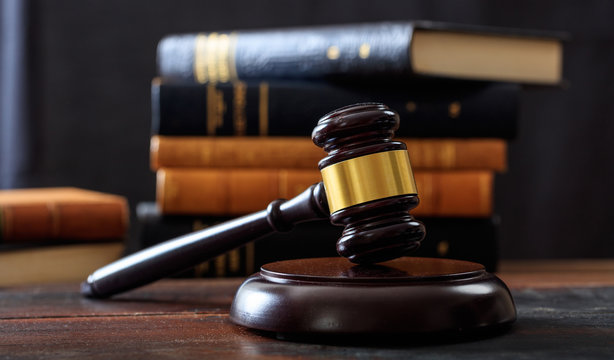Introduction
Being falsely accused of a crime is a terrifying experience that can destroy your reputation, damage your career, and even result in jail time — all without having done anything wrong. Whether it’s due to mistaken identity, a misunderstanding, or a malicious lie, it’s critical to act fast. This guide outlines what to do if you’re falsely accused of a crime, your legal rights, and how to protect yourself.
1. Stay Calm — Don’t Confront the Accuser
Your first reaction might be anger or panic, especially if you know the accusation is false. But do not confront the person accusing you or try to “clear things up” informally. Anything you say can be used against you in court.
Instead:
- Stay calm and polite.
- Avoid social media posts about the situation.
- Do not discuss the case publicly.
2. Understand the Nature of the Accusation
Before you can respond, know exactly what you’re being accused of:
- Is it a civil or criminal matter?
- Are you under formal investigation or just being questioned?
- Have you been arrested or charged?
If you’re unsure, request information from the authorities or consult a defense lawyer.
3. Exercise Your Right to Remain Silent
If law enforcement contacts you:
- Politely decline to answer questions without a lawyer present.
- Say: “I wish to remain silent and speak to an attorney.”
This is your constitutional right in most countries (e.g., the Fifth Amendment in the U.S.). Exercising it does not make you look guilty — it protects you from making mistakes.
4. Hire a Criminal Defense Attorney Immediately
Even if you’re innocent, you need a qualified criminal defense lawyer to:
- Guide you through police interviews or court proceedings
- Prevent wrongful charges or help get them dismissed
- Protect your rights and reputation
Tip: Choose a lawyer who specializes in false accusation defense or criminal law in your jurisdiction.
5. Do Not Destroy Evidence — Gather It Instead
Avoid the instinct to delete texts, emails, or social media posts. This could look suspicious and even lead to obstruction charges.
Instead:
- Preserve all communication with the accuser
- Gather photos, messages, call logs, and witnesses
- Write down your timeline of events while it’s still fresh
Your attorney will use this to build your defense.
6. Avoid Discussing the Case with Others
Even innocent statements made to friends or coworkers can be twisted later. Keep your case between you and your lawyer.
What to avoid:
- Venting to family members in public
- Posting about your innocence online
- Discussing the accuser with mutual acquaintances
Everything you say can be subpoenaed.
7. If Arrested, Follow Legal Procedure
Being arrested while falsely accused is devastating — but stay composed:
- Do not resist arrest.
- Contact your attorney immediately.
- Do not speak to police without your lawyer.
Bail may be available. Your attorney will request a hearing to challenge the charge or request a dismissal.
8. Prepare for a Possible Trial
If the case goes to court:
- Work closely with your attorney to build a factual, documented defense.
- Secure character witnesses, expert testimony, or alibis.
- Dress and speak professionally in all proceedings.
Even if you’re innocent, you must prove it in court — that’s the unfortunate reality.
9. File a Countersuit or Complaint (If Appropriate)
Once the false accusation is cleared, you may be eligible to:
- Sue the accuser for defamation or malicious prosecution
- File a complaint with law enforcement or a court
- Seek damages for legal costs, lost income, or emotional distress
Your lawyer will advise you on the best course of action.
10. Protect Your Reputation and Mental Health
False accusations leave emotional and social scars. You may face:
- Job loss
- Strained relationships
- Mental health challenges (anxiety, depression)
Consider:
- Hiring a reputation management consultant
- Speaking with a therapist or counselor
- Getting a legal expungement or sealing of records (if applicable)
Frequently Asked Questions
Q1: Can you go to jail for a false accusation?
Yes, if the accusation leads to criminal charges and a conviction. That’s why legal defense is crucial — even if you’re innocent.
Q2: What is the punishment for making a false accusation?
In many jurisdictions, knowingly making a false police report is a criminal offense, punishable by jail time and fines.
Q3: Can a false accusation be removed from your record?
Yes. If you’re acquitted or the case is dismissed, you can often request to seal or expunge the record, depending on local laws.
Sample Scenario
Case: David is falsely accused of assault by a former coworker. Surveillance footage and witness statements prove he wasn’t at the scene.
Action: David remains silent, hires an attorney, and avoids social media. His lawyer presents the evidence and the case is dismissed.
Result: David later sues for defamation and recovers legal fees.
Conclusion
False accusations are a serious threat to your freedom, career, and well-being. But you do have rights and legal tools to defend yourself. The key is to act quickly, avoid emotional reactions, and build a strong legal defense with professional support.
